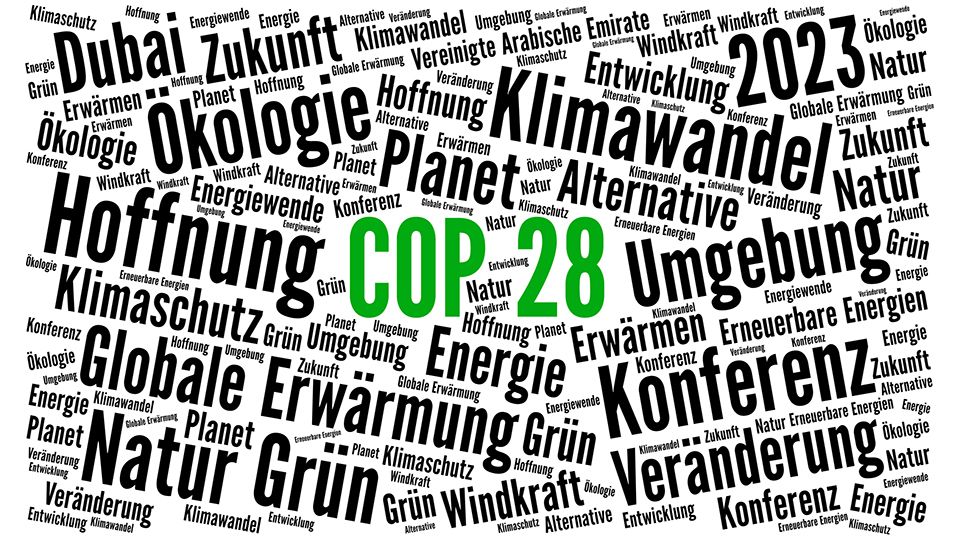What was the most striking thing about COP27 for you? What was your favourite resolution and your key takeaway? Which speech most inspired you? How did you feel about the “guidance on the implementation of Article 6 of the Kyoto Protocol”?
If you’re struggling to answer any of those questions, then imagine them posed to say “Brenda from Bristol” or any other interviewees at a vox populi.
What then of COP28? How will the resolutions and the good intentions linger in the imagination of the public once the last delegate has departed from Dubai?
Sadly, very little. Like any major organisational plenary, there will be some headlines and a few political trickles-through to a handful of interested constituents but for your average punter, there will be little enduring empathy for an event that doesn’t seemingly impact their day-to-day travails.
See also: – IOSCO chair: Regular investors don’t care about politics and frameworks
This does not reflect the importance of this event and the environmental imperatives that it seeks to address. Nor does it reflect the awareness by the public of some of the challenges posed by climate change. There are certainly enough documentaries and press articles that keep reminding us of the precarious state of our planetary boundaries.
When you are addressing a market failure such as an externality you are faced with the problem of allocating costs for its correction. Increasing prices and/or raising taxes will change behaviours, but this also crashes into what is arguable a human trait: self-interest.
Contradictions
I witnessed this recently in a trip to my native Australia. The coal-fired Liddell power station in New South Wales, which supplied around 10% of the electricity to Australia’s most populous state, closed in April. Five other Australian coal-powered stations are scheduled for closure within the next seven years representing some 13% of its grid supply.
Burning coal is clearly not compatible with any net-zero ambitions, but the shuttering of coal-fired power plants raises issues for mums and dads. To meet its climate-related obligations, Australia can no longer rely on its abundant natural resources to provide energy for its citizens.
For the residents of NSW, this means the increased expense that comes with having to import electricity from neighbouring states because alternative sources of energy, such as solar and wind, and the infrastructure necessary for electricity storage are not sufficient to pick up the slack. Increased costs or supply shortages are not going to inspire you to a cause.
These issues are not isolated to a sun-drenched country like Australia. The UK’s less clement climate lends itself to windfarms as a source of clean energy production. And yet in March, low-winds and a cold snap resulted in approval for coal-plants in Nottinghamshire to fire up their furnaces.
At the heart of the solutions to climate change lie contradictions. Think of the issues around the just transition, think of the geopolitical environment we find ourselves in – war in Ukraine, figurative battlelines too being drawn in the US with anti-ESG “Red States” directly influencing the capital flows of large international fund managers. How about the panacea of electric vehicles, which local councils will no longer supply charge points for because electricity is too expensive?
Meanwhile the damage continues. The Rivers Trust reports that only 14% of England’s rivers are in good health. UK biodiversity is faltering with ongoing depletion of its spider, bird and insect populations. Monoculture and farming practices are further impacting species and causing critical chemical run-offs. Sea levels and temperatures continue to rise and climate variation is becoming more marked and often, clearly noticeable.
Successful collective action requires at its heart an aspirational vision. If the public is to relate to an issue it needs to be carried along, convinced as to why it might need to suffer increased costs or taxes or endure energy shortages for the greater good.
COP28 needs to provide not only regulatory imperatives and esoteric protocols. It needs to provide a vision that truly inspires, motivates and lifts us. If it fails to arrest the public’s attention, we just get on with our day-to-day struggles disenfranchised from the most critical externality our planet faces. This allows the important narrative to be filled by a vocal and often militant cohort of climate change deniers or eco-terrorists creating further antipathy.








